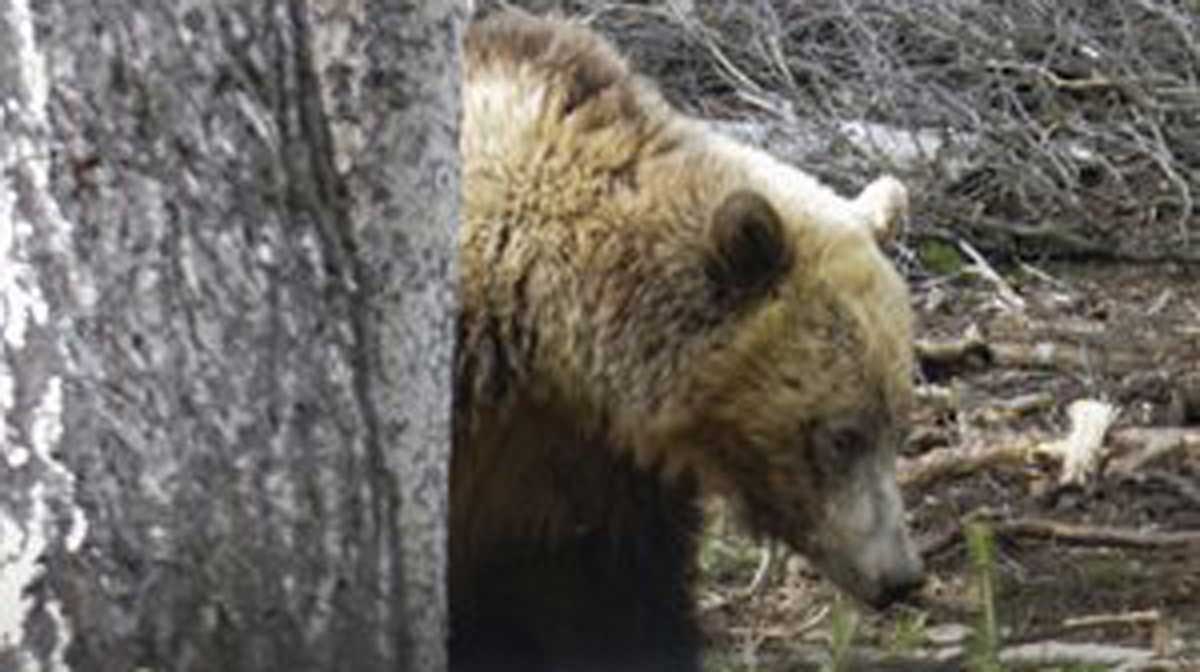While enjoying the outdoors with your activity of choice this fall, stay safe by being alert for signs of bears. All people recreating in bear country should maintain awareness and take safety precautions, especially properly storing food items and other attractants away from bears. Hunters especially can be more likely to encounter a bear by the nature of their activity.
“Hunters move quietly, wear camouflage, mask their human scent, are active at dawn and dusk, and use game calls to mimic what bears consider prey. All of these behaviors make hunters successful, but at the same time, there is an inherent risk of attracting bears or bumping into one,” said Dusty Lasseter, Bear Wise community coordinator for the Wyoming Game and Fish Department.
Hunters can follow these tips to help minimize the chance a bear conflict happens:
Always try to hunt or call with a partner and stay within sight of each other.
- Remain alert and watchful for bear activity; avoid “tunnel vision” while pursuing game.
- Learn to recognize bear sign such as scat, tracks, and diggings.
- Retrieve game animals as quickly as possible and watch for approaching bears when field dressing and quartering. The longer game is in the field, at camp, or in the back of a vehicle the more likely it is to be discovered by a bear.
- Quarter and hang the carcass in a tree at least 10’ to 15’ from the ground and 4’ from the tree trunk. Separate the carcass from the entrails and place the carcass in an area that can be safely viewed from a distance, if game must be left on the ground overnight.
- When retrieving game, make noise; use binoculars to search the area for bears and to determine if the game has been disturbed by bears prior to walking in on the carcass.
- Be aware that bears often set up a daybed near food sources.
- If a bear has claimed your carcass, leave the scene and report the incident to Game and Fish. Do not attempt to scare the bear away.
- Remember that bears actively defend their food, their young, and their personal space. During the fall, all bears are on the lookout for food before going into hibernation for the winter.
“When you are camping, keeping a clean camp is the key to human safety,” said Lasseter. “It is the law on most U.S. Forest Service lands in northwest Wyoming, but good practice everywhere you camp.”
To prevent attracting a bear to your camp area and creating an unsafe situation for yourself and other recreationalists, secure and pack out all garbage, barbecue grills, food items, flavored beverages, pet food and other attractants in a vehicle or hard-sided camper before going to sleep at night and any time you leave the campsite. In the backcountry store food and coolers suspended from a tree at least 10’ to 15’ high and 4’ feet away from the tree trunk. The sleeping area should be at least 100 yards away from food storage and the eating/cooking area.
To reduce the chance of having a conflict with a bear, there are many precautions everyone can take:
- Carry a bear deterrent, and know how to use it. Many aggressive bears have been deterred through the use of bear spray. People should carry bear spray where it can be reached and know how, and when, to use it.
- Make sure your bear spray is EPA approved and not a generic or “knock-off” spray that may prove faulty.
- Know where seasonal food sources (like berries) are present and either avoid or be especially cautious in those areas.
- Be aware that the presence of ravens and other scavengers is a good indication that a potential food source is nearby and a bear may be in the area. Avoid these areas if possible.
“Human safety is the first concern in any bear encounter,” Lasseter said. “Bear spray is an effective deterrent and we encourage people, especially hunters to carry and, when appropriate, use bear spray.”
Game and Fish also recommends having a ‘bear aware’ plan in place. More safety information and videos are available on the Game and Fish Bear Wise Wyoming website.
“The most important tool people can use when hunting and recreating in bear country is their brain. Everyone should practice maintaining an awareness of their surroundings and knowing how to react to potential bear encounters,” Lasseter said.
To report an incident, call your local state wildlife agency.
(Photo source: Wyoming Game and Fish Department)
